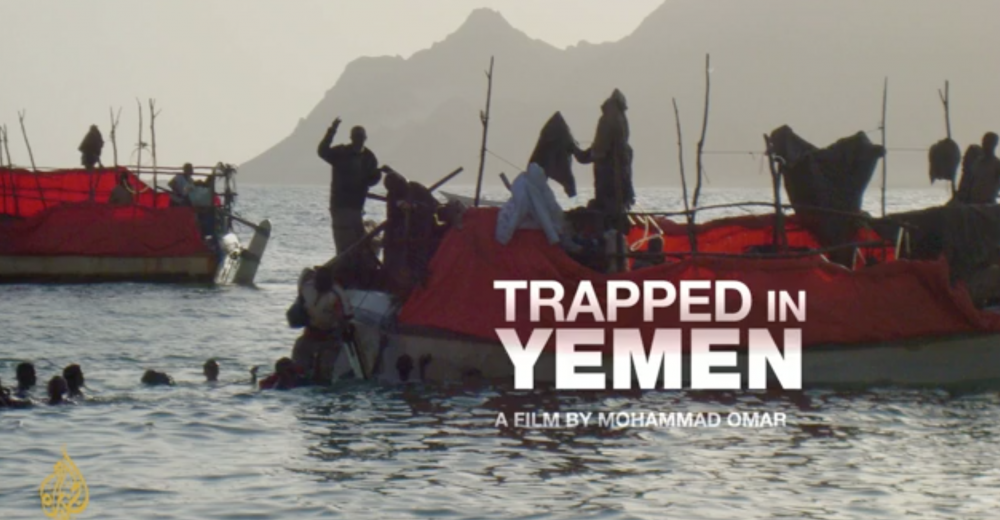Filmmaker: Mohammad Omar
Since 1991, after the collapse of the Siad Barre regime, a civil war in Somalia has triggered a steady exodus from the country that continues today.
Somalis regularly flee to Yemen which has had an open door policy towards them since the war began.
They travel by sea, in vessels they call "boats of death," because their journeys are fraught with danger: They are at the mercy of people smugglers who charge around $100 a head to take them across the Gulf of Aden. If they are spotted by the Yemeni coastguard, the smugglers might even throw passengers overboard to save their own skins. And the oversized boats often capsize.
We have ninth graders [13- and 14-year-olds] who don’t know how to write their own names. I have nothing to eat. I swear to God, I’m hungry talking to you now.
– Mustafa Bin Mustafa, Somali refugee
Once in Yemen, many of the refugees make their way to Kharaz refugee camp which, with its population of around 17,000, cannot accommodate the Somali refugees who now number 240,000, according to UN estimates.
Somali refugees in Yemen face an uncertain, often dangerous, future. They often live in poverty, struggle to find work, face discrimination and can fall victim to human trafficking.
For those who want to escape Yemen for Saudi Arabia, people smugglers will try and intervene and have been known to abduct and torture refugees. Since 2011, human traffickers have turned homes into "smugglers' yards" where they imprison and torture Somalis. Even though the Yemeni authorities have closed down some "yards", they invariably re-open in other districts.
In this film, we hear the stories of refugees at Kharaz refugee camp and others in Sanaa trying to start a new life in the city. We speak to the aid agencies and officials; and we track down and confront the human smugglers who kidnap and abuse the vulnerability of refugees whose families can face ransom demands.
Now, with Yemen embroiled in fresh internal conflict and cutting humanitarian aid, the UN can only afford to do the bare minimum. Some Somalis want to return home but the UN cannot send them back to a war zone. Unless the refugees can find their own way out of the country, they will remain trapped indefinitely in Yemen.
Source:
Al Jazeera


